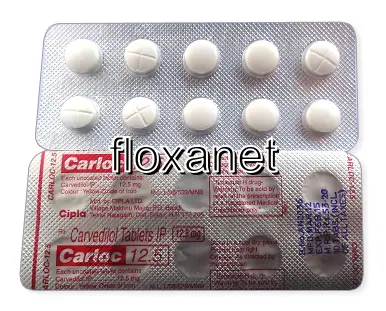| Package | Dosage | Price | Price per Dose | |
|---|---|---|---|---|
| Dosage: 3.125mg | ||||
| 360 pill | 3.125mg | $249.83 | $0.69 | |
| 180 pill | 3.125mg | $140.17 | $0.78 | |
| 120 pill | 3.125mg | $102.70 | $0.86 | |
| 90 pill | 3.125mg | $86.04 | $0.96 | |
| 60 pill | 3.125mg | $63.83 | $1.07 | |
| 30 pill | 3.125mg | $41.63 | $1.39 | |
| Dosage: 6,25mg | ||||
| 360 pill | 6,25mg | $280.36 | $0.78 | |
| 180 pill | 6,25mg | $155.44 | $0.86 | |
| 120 pill | 6,25mg | $116.58 | $0.97 | |
| 90 pill | 6,25mg | $97.15 | $1.08 | |
| 60 pill | 6,25mg | $76.33 | $1.26 | |
| 30 pill | 6,25mg | $44.40 | $1.47 | |
| Dosage: 12,5mg | ||||
| 360 pill | 12,5mg | $390.01 | $1.08 | |
| 180 pill | 12,5mg | $215.13 | $1.19 | |
| 120 pill | 12,5mg | $159.61 | $1.33 | |
| 90 pill | 12,5mg | $130.46 | $1.44 | |
| 60 pill | 12,5mg | $94.37 | $1.57 | |
| 30 pill | 12,5mg | $52.73 | $1.78 | |
| 10 pill | 12,5mg | $20.81 | $2.12 | |
| Dosage: 25mg | ||||
| 360 pill | 25mg | $649.57 | $1.80 | |
| 180 pill | 25mg | $327.55 | $1.82 | |
| 120 pill | 25mg | $227.62 | $1.90 | |
| 90 pill | 25mg | $185.98 | $2.07 | |
| 60 pill | 25mg | $138.79 | $2.32 | |
| 30 pill | 25mg | $81.88 | $2.73 | |
| 10 pill | 25mg | $37.46 | $3.71 | |

Carvedilol Description
What is Carvedilol?
Carvedilol is a medication commonly prescribed to treat high blood pressure and heart failure. It belongs to a class of drugs known as beta-blockers, which work by blocking certain receptors in the heart and blood vessels. This action helps to reduce heart rate, decrease blood pressure, and improve overall heart function. Carvedilol is unique because it also has antioxidant properties, which may provide additional benefits in protecting the heart from oxidative stress. It is available by prescription and should be used under the guidance of a healthcare professional.
How Does Carvedilol Work?
The primary mechanism of carvedilol involves blocking beta-adrenergic receptors. By doing so, it reduces the heart's workload and the amount of oxygen the heart needs. It also blocks alpha-adrenergic receptors, resulting in dilation of blood vessels. This combined effect leads to a decrease in blood pressure and alleviates the symptoms of heart failure. The drug’s antioxidant activity may also help to prevent damage caused by free radicals, further supporting heart health.
Benefits of Carvedilol
Patients often find carvedilol effective in managing their cardiovascular conditions. It helps lower blood pressure levels, making it easier for the heart to pump blood throughout the body. For those with heart failure, carvedilol can improve symptoms, enhance exercise tolerance, and reduce the risk of hospitalization. Many users report a significant reduction in chest pain and better control over their blood pressure readings. The medication's ability to provide these benefits makes it a vital part of many treatment plans for cardiovascular health.
Possible Side Effects
While carvedilol is generally well tolerated, some users may experience side effects. Common issues include fatigue, dizziness, and a slow heart rate. Some individuals may notice weight gain or swelling, especially in the ankles or legs. Less frequently, allergic reactions such as rash or difficulty breathing can occur. It is important for users to monitor their health closely and report any unusual symptoms to their healthcare provider promptly. Serious side effects are rare but can include significant lowering of blood pressure or worsening heart failure symptoms.
Precautions and Warnings
Before starting carvedilol, patients should inform their doctor about any other medical conditions, especially asthma, diabetes, or liver problems. It is also crucial to discuss all medications being taken, as carvedilol can interact with other drugs, including certain anti-diabetic medicines and other blood pressure medications. Pregnant or breastfeeding women should consult their healthcare provider to weigh the potential benefits and risks. Abrupt discontinuation of carvedilol can cause a sudden increase in blood pressure or chest pain, so it should be tapered off gradually under medical supervision.
Usage Instructions
Carvedilol is usually taken orally, with or without food, as directed by a healthcare professional. The dosage varies depending on the condition being treated and the patient’s response to the medication. It’s essential to adhere to the prescribed schedule and not to stop the medication suddenly without medical advice. Regular monitoring of blood pressure and heart function helps to determine the effectiveness of the therapy. Patients should also be aware of possible signs of low blood pressure or heart failure worsening, including dizziness, weakness, or swelling, which require prompt medical attention.
Summary
Carvedilol is a versatile beta-blocker with added antioxidant benefits that make it a valuable option for many cardiovascular conditions. It effectively lowers blood pressure and improves heart failure symptoms when used correctly. However, it requires careful monitoring and medical supervision due to potential side effects and interactions. For those managing hypertension or heart failure, carvedilol offers substantial benefits but should always be taken as part of a comprehensive treatment plan tailored by a healthcare professional. Proper usage and regular check-ups can help maximize its therapeutic effects while minimizing risks.
